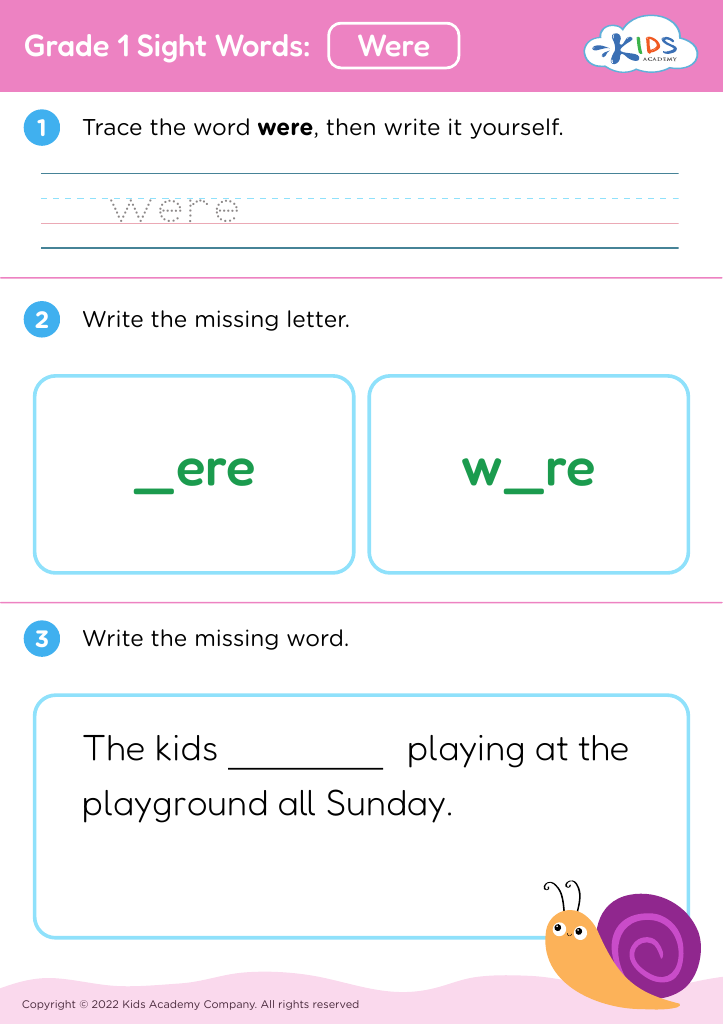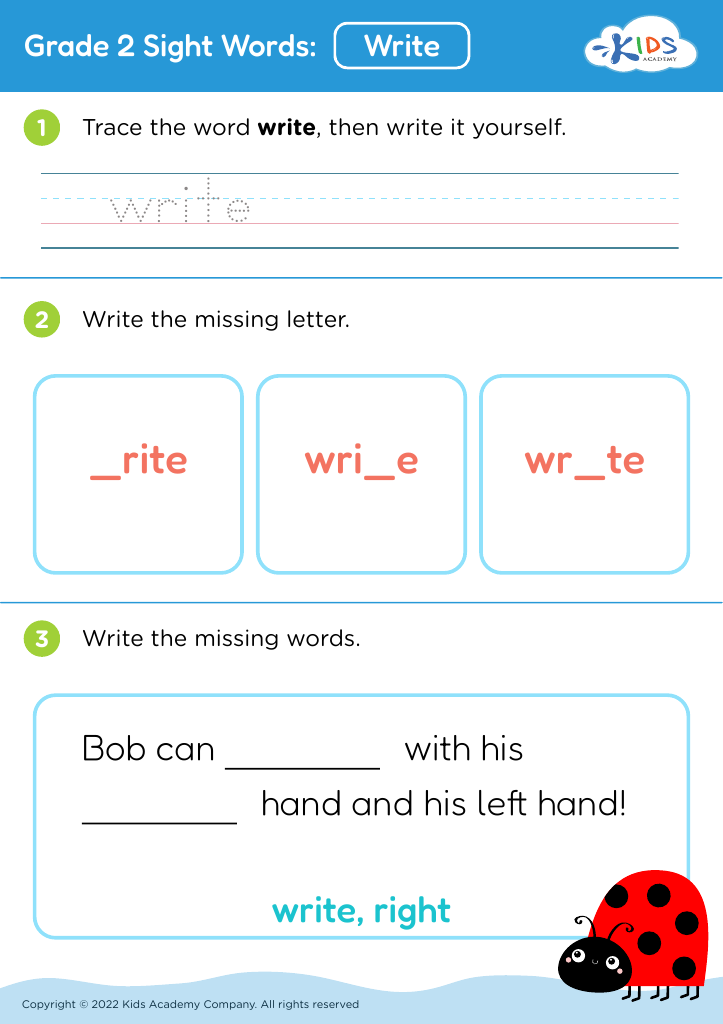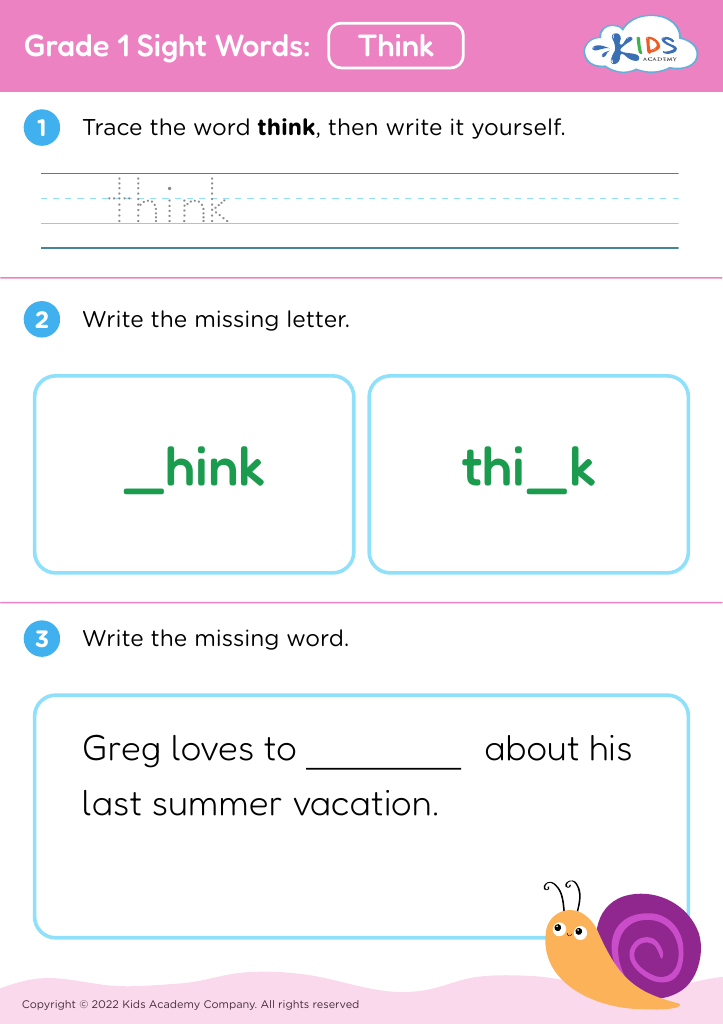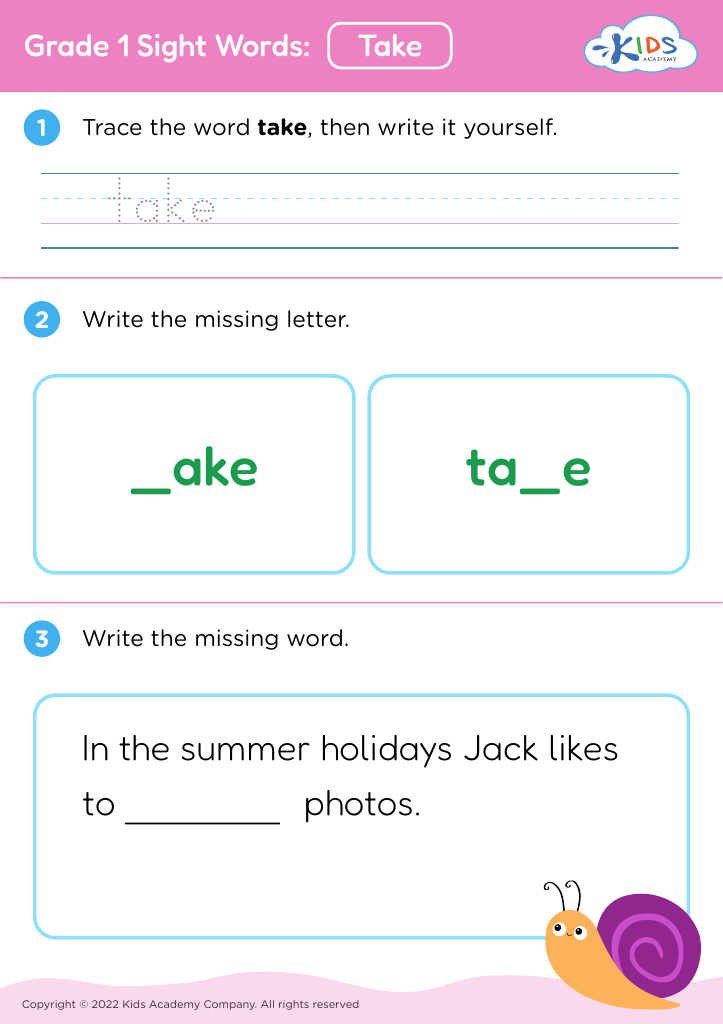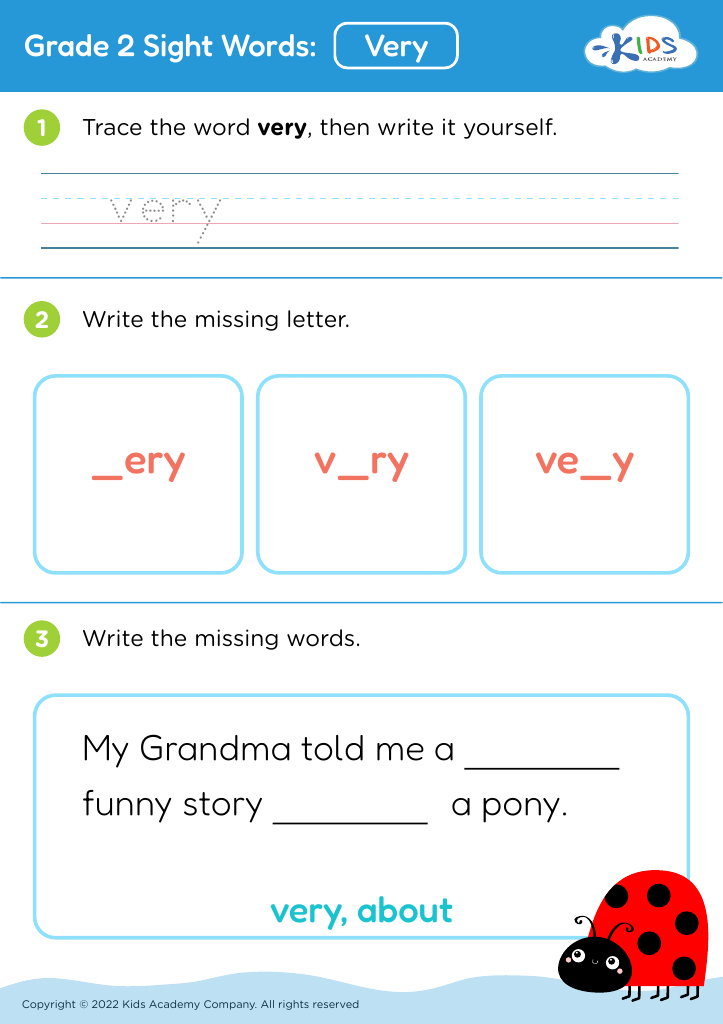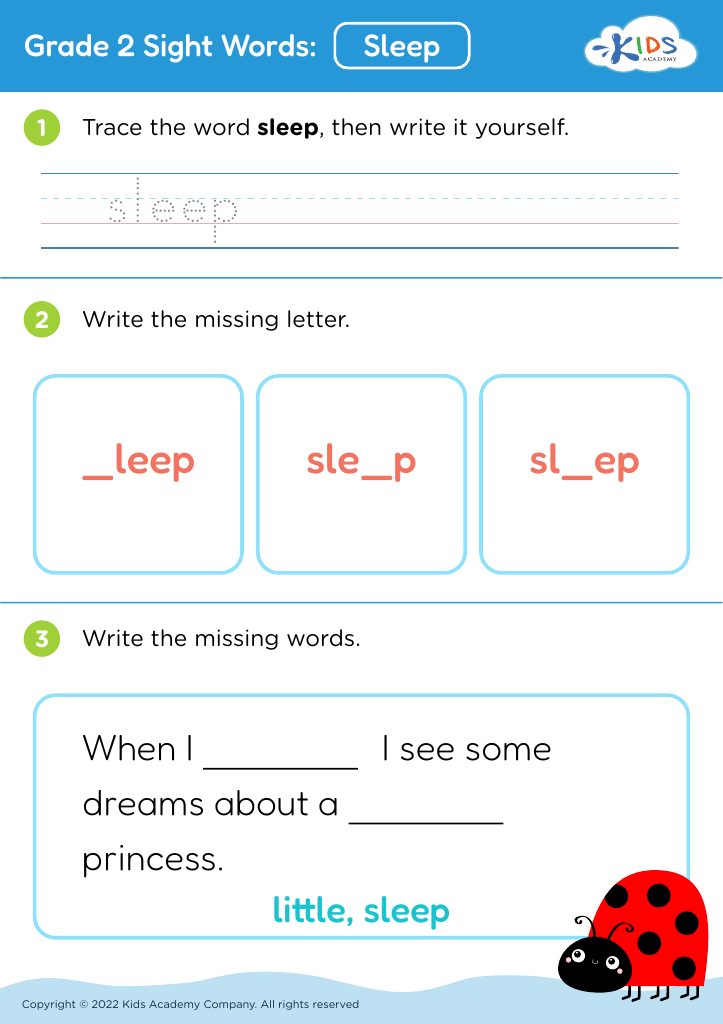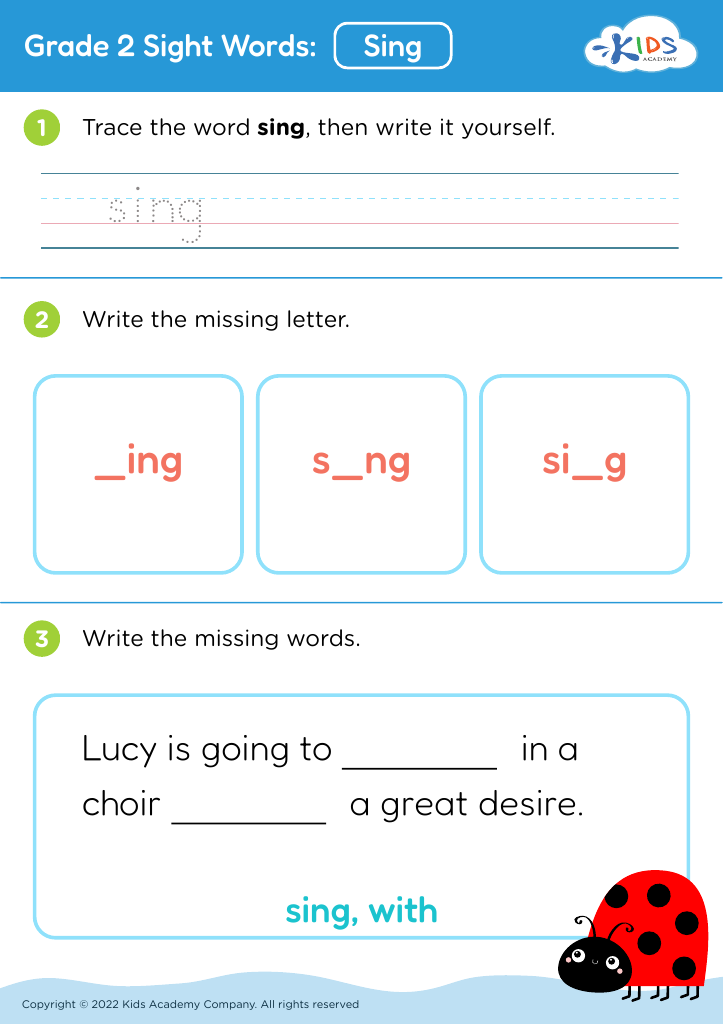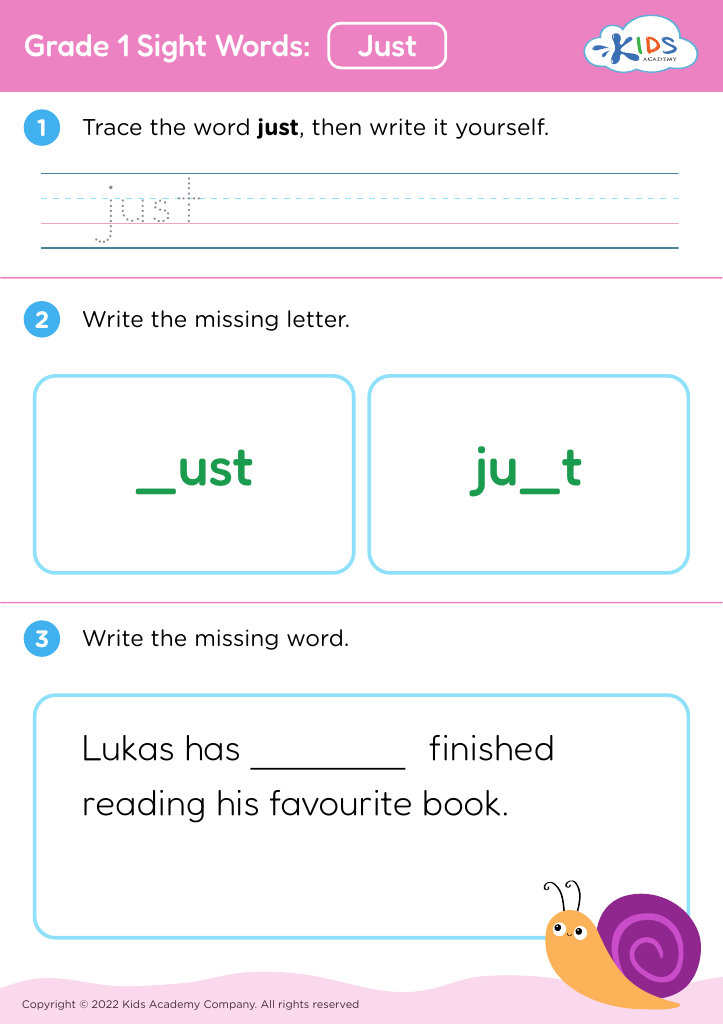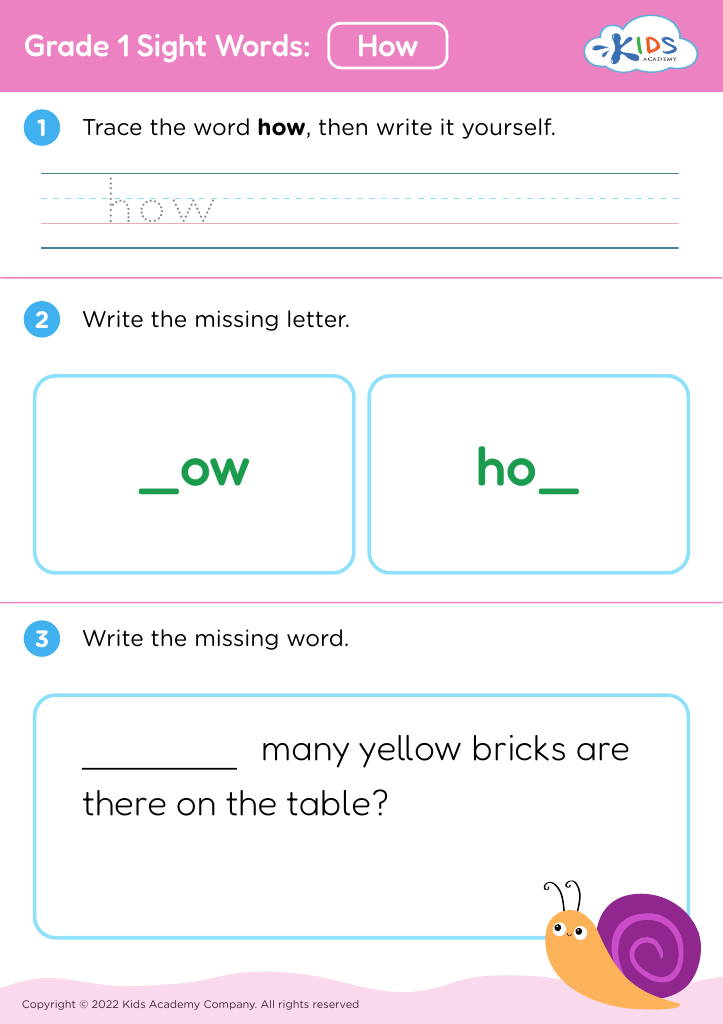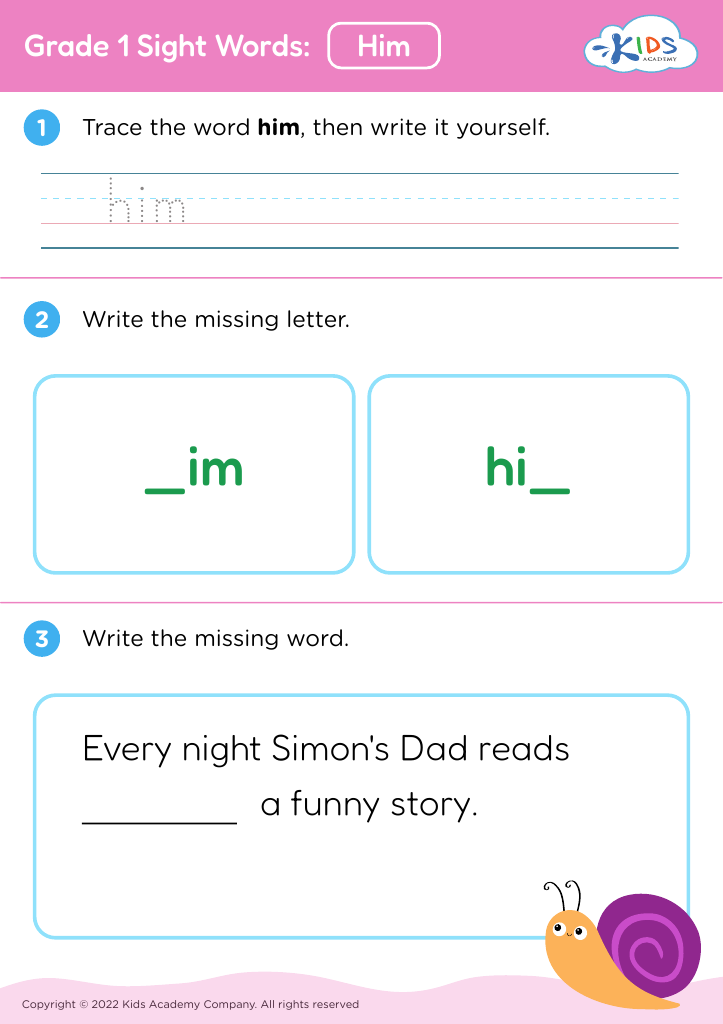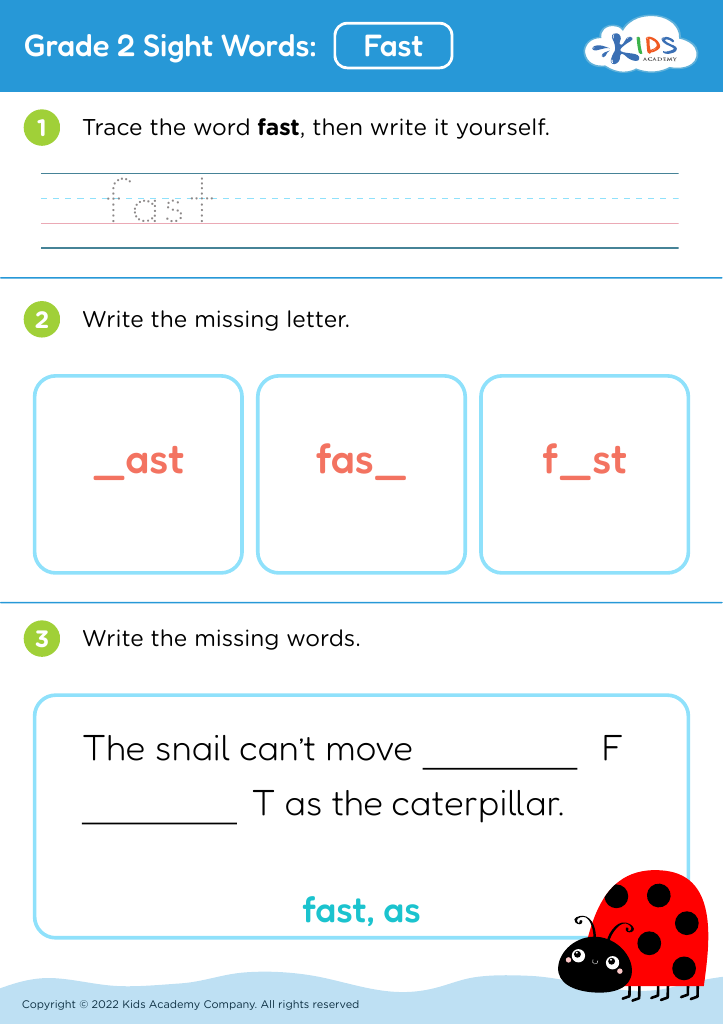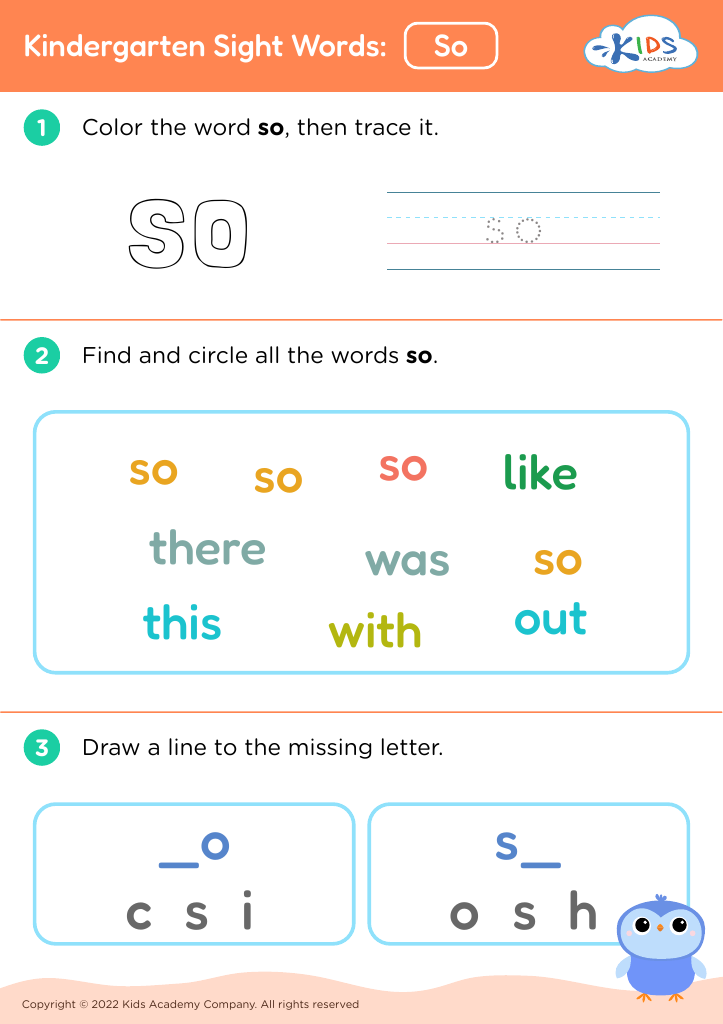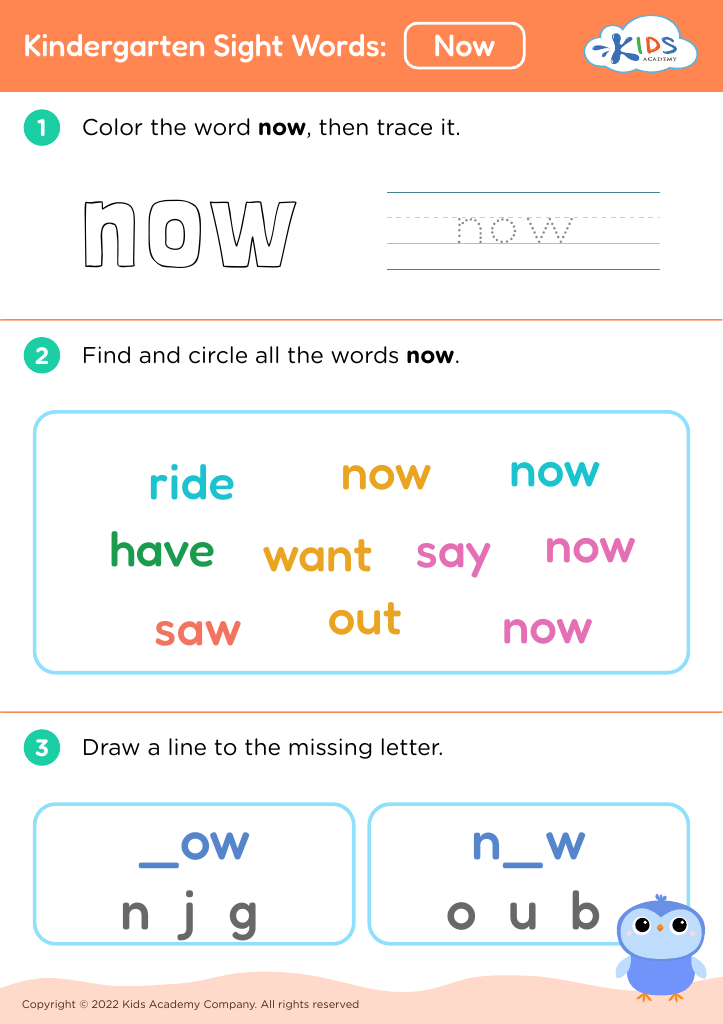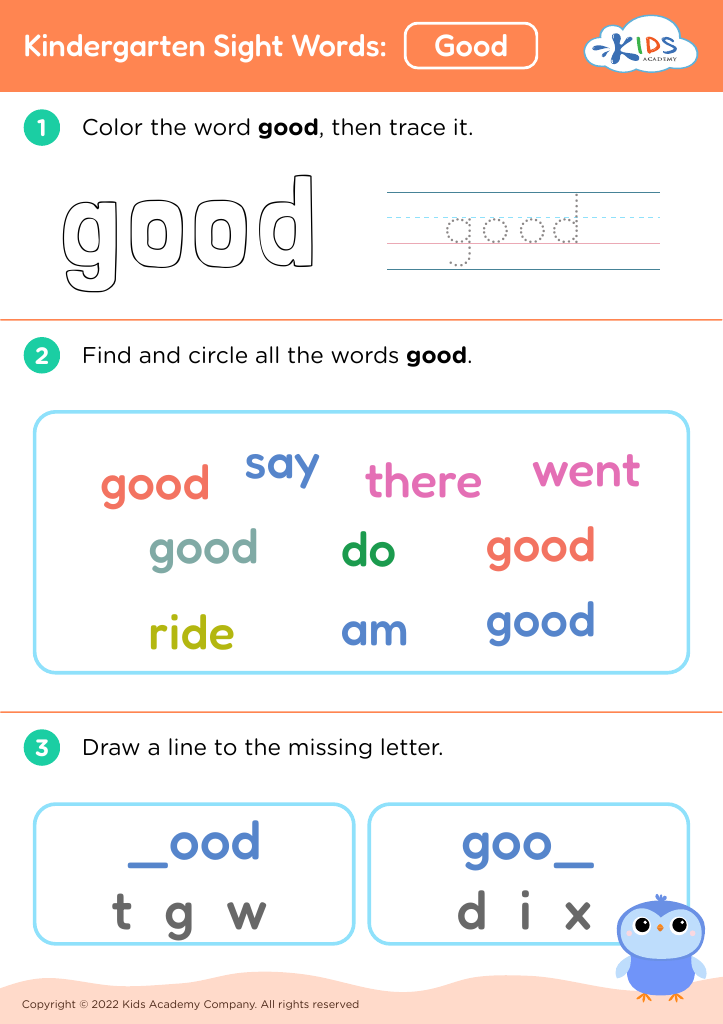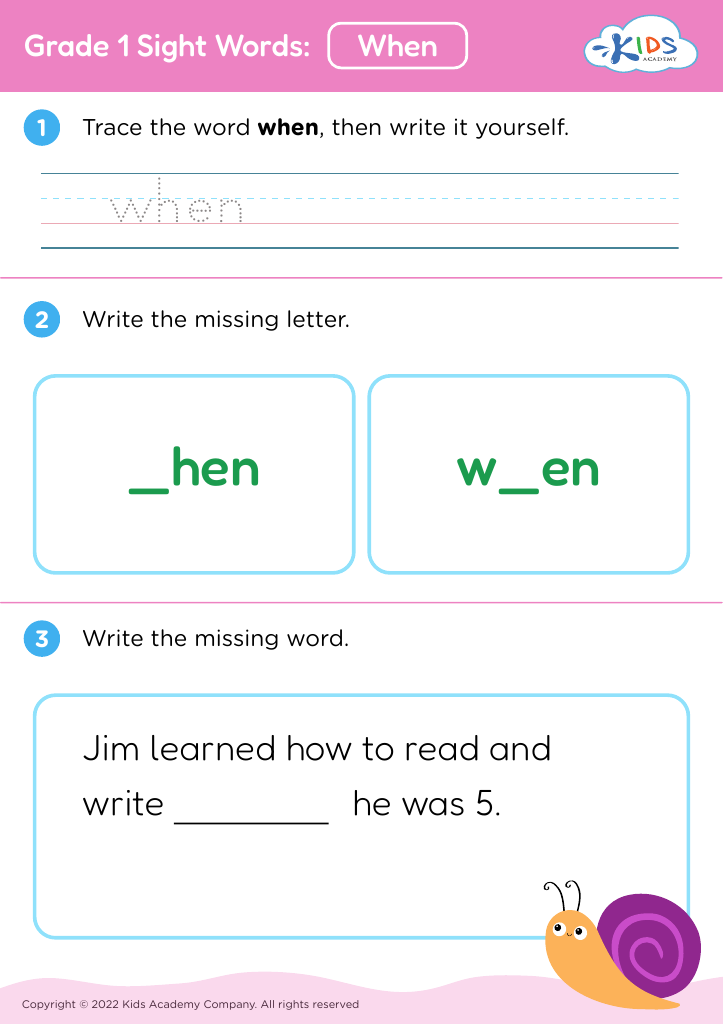Counting skills Building Vocabulary Worksheets for Ages 6-7
22 filtered results
-
From - To
Enhance your child's learning with our "Counting Skills Building Vocabulary Worksheets for Ages 6-7." These thoughtfully designed resources combine essential counting practice with vocabulary development, fostering both numerical and language skills. Children will engage with fun, interactive activities that encourage counting in various contexts while introducing new words. Perfect for reinforcing math and language arts concepts, these worksheets cater to early learners' needs, making learning enjoyable and effective. Plus, they provide an excellent way for parents and educators to track progress. Explore our selection today and give your child the tools they need for a strong foundation in math and literacy!
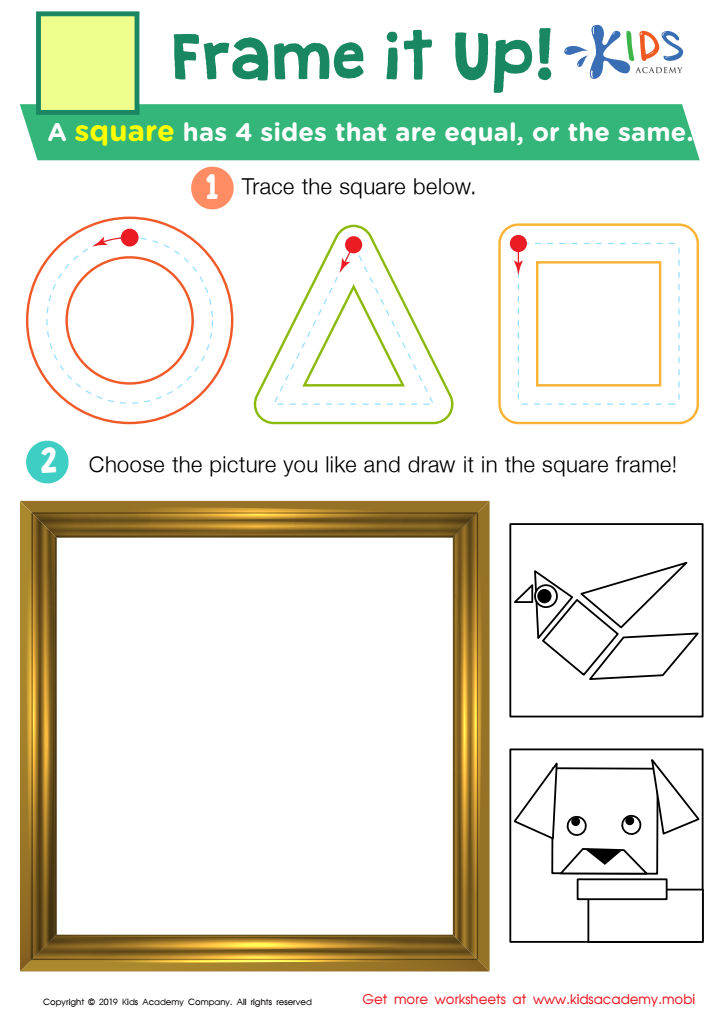

Frame it Up Worksheet
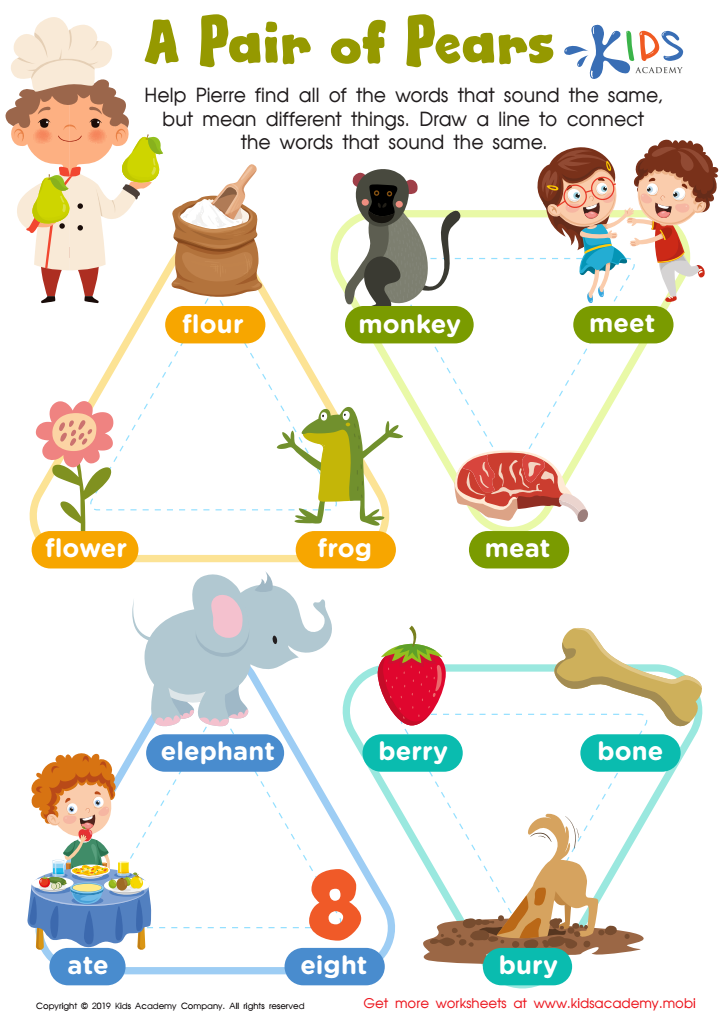

Pair Pears Worksheet
Counting skills and vocabulary building are essential components of a child's early development, particularly for ages 6-7, as they lay the foundation for future academic success. Firstly, counting skills are crucial for understanding basic math concepts like addition, subtraction, and even more complex operations down the road. Mastering these skills enhances problem-solving abilities and fosters a sense of confidence in handling numerical information, which is vital in today's mathematics-centric society.
Simultaneously, building vocabulary significantly impacts a child's ability to communicate effectively and comprehend what they read. A rich vocabulary enhances reading skills, enabling children to understand stories and concepts better, which in turn supports their literacy development across subjects. It encourages critical thinking and creativity, allowing children to express themselves and their ideas in diverse ways.
In essence, when parents and teachers prioritize counting skills and vocabulary development, they are investing in a well-rounded education that equips children with the necessary tools to navigate academic challenges. This dual focus not only enriches their learning experiences but also fosters a love for discovery and an understanding of the world around them, paving the way for lifelong learning. Therefore, passionate engagement in these areas outweighs the momentary demands of contemporary education.

 Assign to My Students
Assign to My Students











